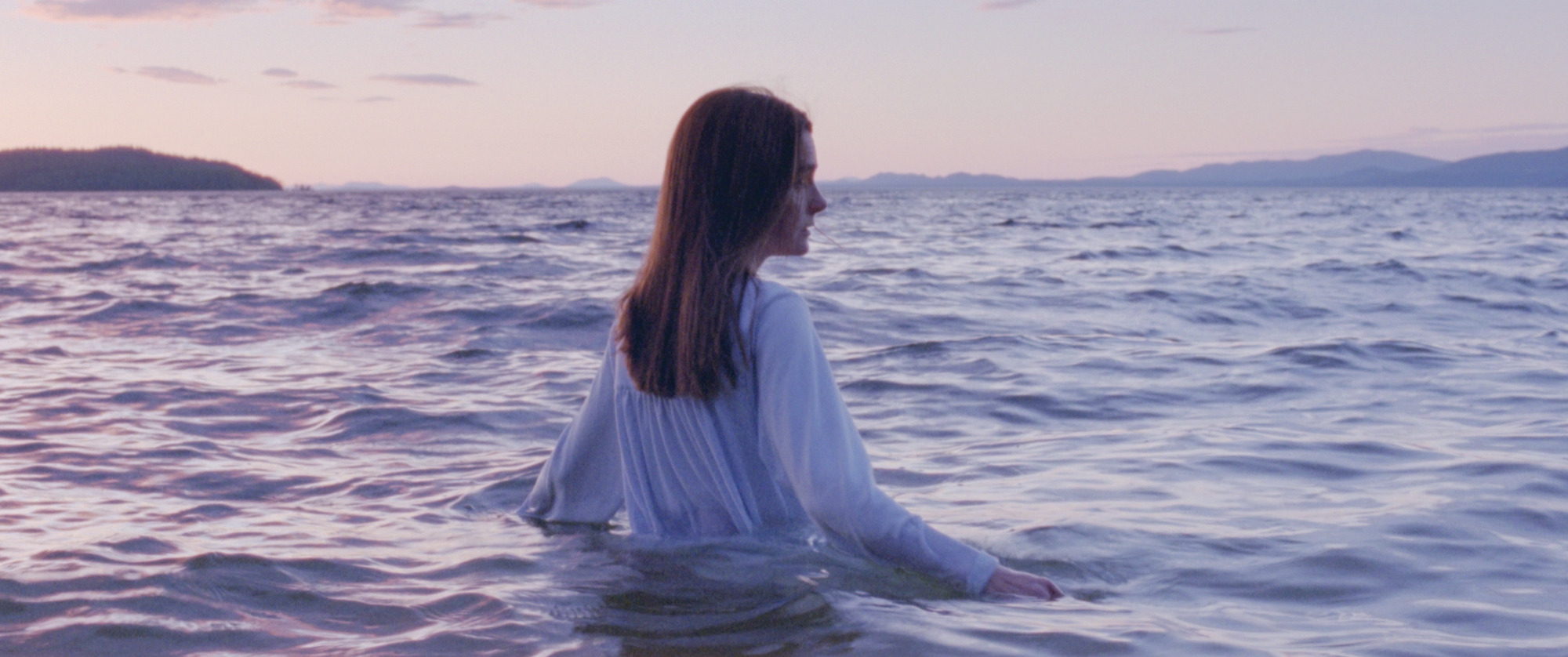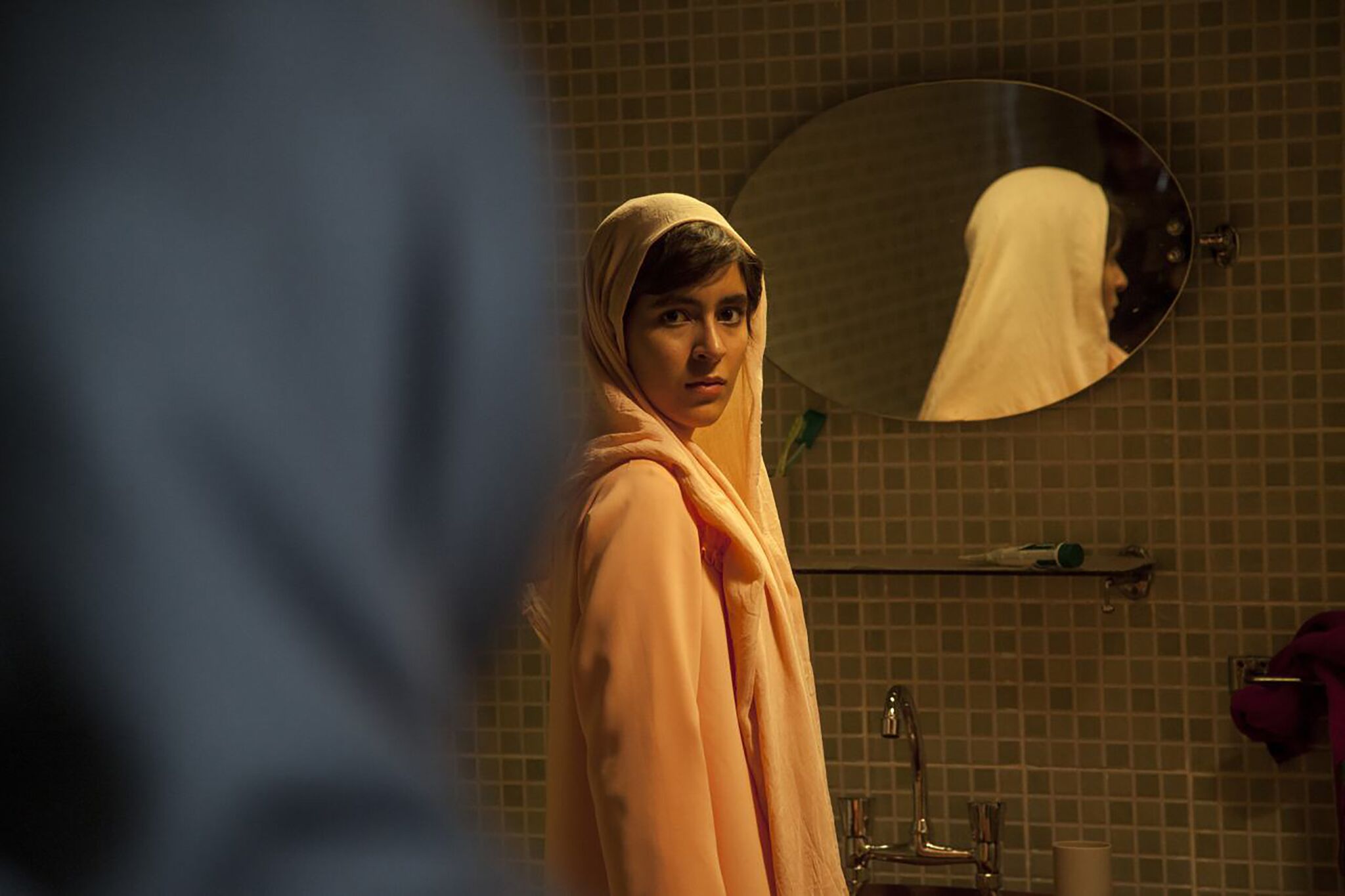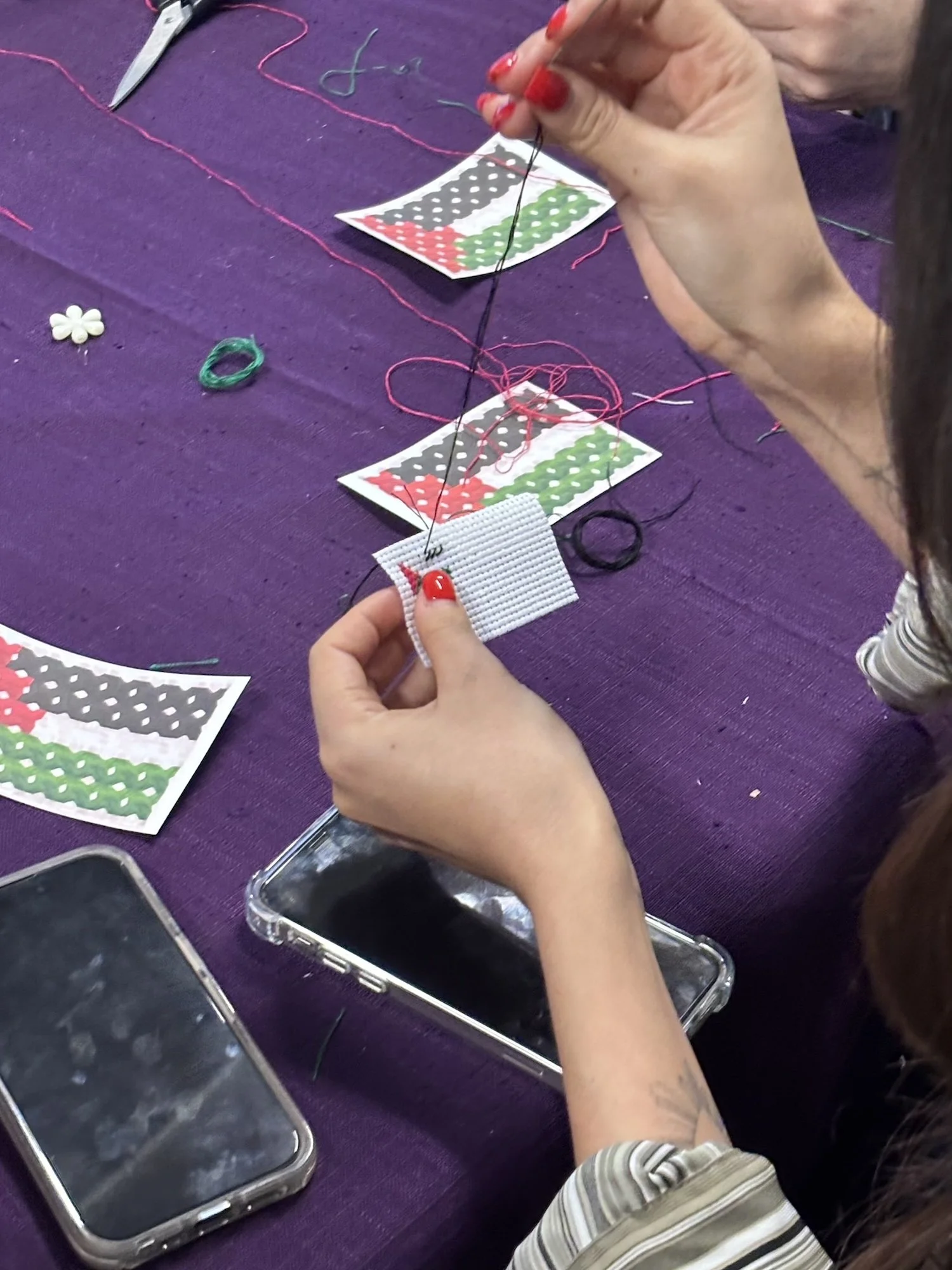Review: Canada's Top Ten Film Festival at the Cinematheque
/For most Vancouver residents, Canada’s most prestigious film festival—Toronto International Film Festival (TIFF)—seems a world away. Since 2001, TIFF has curated a travelling festival featuring what it considers to be its best selections, bringing some of these films a little bit closer to (our) home. Canada’s Top Ten Film Festival highlights domestic feature lengths, shorts and student shorts. It’s a chance to interact with our nation’s cinema (sometimes literally; a few of the screenings include Q&As with the filmmakers) in ways that may not otherwise be accessible. From January 13-21, Vancouver’s Cinematheque hosted 2017’s selections.
Opening the festival was Never Steady, Never Still, the debut feature from Vancouverite Kathleen Hepburn. Set in northern B.C. (just outside of “the Prince”), it sees Shirley Henderson in the lead role, playing a middle-aged woman struggling with Parkinson’s. After her son leaves to work on the Alberta oil fields, her husband suffers a heart attack and passes away. She is left in quietude, trembling her way through the silence and stillness of small town life. Her son, meanwhile, faces the banal brutality of male coming-of-age, feeling out his sexuality and place in the world on his lonesome.
Still from Kathleen Hepburn's Never Steady, Never Still
While Never Steady is a film about Parkinson’s (and in this sense, is a film close to Hepburn’s heart, as she revealed in the post-film Q&A that her mother has battled Parkinson’s for the past two decades), and a film about grappling with one’s sexuality, its themes have a broader resonance. Ultimately, it’s a film about isolation, and about facing personal struggles within this isolation. Never Steady is a slow film, its pacing true to small town life. But its patience, strong performances (especially from Henderson), and hazy, yet vibrant cinematography make it one of the best local films of the year.
The festival’s first documentary selection was Charles Officer’s Unarmed Verses, centring around an arts program in a Toronto housing project. Despite its unassuming shell, Unarmed Verses is a multilayered film. The camera mostly follows Francine Valentine, a girl living in the community with her grandmother, father and adopted (autistic) uncles. She loves poetry but is afraid to share her own. As we follow Francine through daily existence, there is also a city vote happening, on whether to replace Francine’s decrepit housing project with a new one, a four-year process during which the residents will be displaced. Between these happenings, Unarmed Verses finds itself acting as a commentary on the connective power of art, and its ability to build bridges.
Still from Charles Officer's Unarmed Verses
Francine, admittedly, is not the most interesting person seen on screen during Unarmed Verses’ 86-minute runtime. Quite honestly, her antics and stubbornness sometimes become tedious and frustrating; other participants in her art class certainly seem more insightful, particularly the young spoken word poet whose verse is featured throughout the doc. But even in her young naiveté, in her quietness, Francine possesses a drive and a liveliness which perfectly embodies her neighbourhood. Despite adversity, there is resilience.
Following Unarmed Verses was TIFF’s top 10 short films. While the feature-lengths were an eclectic bunch, the short films proved to be even more so. A quick rundown:
The Argument (dir. Daniel Cockburn) was the most avant-garde, mixing drama with video essay. Obscure in nature, yet still accessible.
Threads (dir. Torill Kove) was the only traditional animated film featured, a quirky take on parenthood. Familiar fare, but maybe it is because of this familiarity that it packs such an emotional punch.
Milk (dir Heather Young) most definitely made me more uncomfortable than any film shown at the festival. It combines narrative of an unexpected pregnancy with shots of cows giving birth, defecating and being milked, ultimately turning the film into a meditation on the beauty found amongst the scatological. But it may make you nauseous along the way.
The Botanist (dir. Maude Plante-Husaruk and Maxime Lacost-Lubuis) has my pick for the best of the shorts. A documentary on a former botanist living in a tiny village in the Tajikistani plains, it is a story from a place never seen, from a man who could not care less for recognition. The subject’s resilience and the creativity that he uses in his day-to-day survival is remarkable, and always engaging. The cinematography perfectly captures the rugged nature that the titular botanist lives in.
The Drop In (dir. Naledi Jackson) is by far the weakest short included in the festival. An homage to old kung fu flicks, it’s too silly to be captivating, too self-serious to be fun.
Rupture (dir. Yassima Karajah) is a delightful, heartbreaking coming-of-age film concerning four Arab kids, recently immigrated and short on usable English. Their frustration and curiosity are universally seen in children this age, and their troubles with a new language only add a fresh layer to the “adolescent discovery” trope.
The remaining shorts seemed a little scant on substance, despite impressive craft and singular artistic vision. Flood (dir. Amanda Strong), a five-minute stop-animation short featuring a young indigenous girl fighting European colonists, is a little too muddled to be truly effective. The Tesla World Light (dir. Matthew Rankin), is a bizarre watch, telling the (apparently) true story of how Nikolai Tesla fell in love with a pigeon.
Still from Amanda Strong's Flood
I feel like there is something interesting at the heart of The Crying Conch (dir. Vincent Toi), a modern fable in which a man from tribal background enters society, only to come into conflict with its regiment. But its narrative is very unclear––not in an avant-garde kind of way, but in a structurally weak kind of way.
Pre Drink (dir. Marc-Antoine Lemire), however, ended the short film showcase on a pretty high note; a 17-minute fare that documents two long-time friends, one gay, one transitioning, stumbling their way into having sex for the first time. It’s honest and true in its performances, and in its approach to misconceived emotions and intentions.
Returning to the festival’s feature lengths, the next ones I caught were those included in Friday, January 19’s double feature of Les Affames and The Girl Who Was Too Fond of Matches. The former is a French-language zombie picture written and directed by Robin Aubert. Story-wise, the film plays it safe, and is pretty standard zombie fare. A group of strangers find themselves brought together due to the ongoing apocalypse, and they must rely on each other to survive. Relationships come to be, characters come to be eaten. Les Affames does this mostly well, but it isn’t at any given time really swinging for the fences. It does have a decent sense of humour, and there are some pleasingly gory images. Plus, the cinematography is excellent: though Les Affames was clearly shot on a low budget, it does what it can to look good, taking full advantage of the beauty of the Québec backwoods in which it was shot.
Still from Robin Aubert's Les Affames
The Girl Who Was Too Fond of Matches, on the other hand, is one of the best films of the year, Canadian or otherwise. This is Simon Lavoie’s adaption of Gaetan Soucy’s acclaimed 1998 novel, a gothic tale about two children raised in isolation by their father, who is a religious zealot. Despite the younger child being a girl, the father denies her her gender, insisting that she is male. What ensues is a dark, disturbing gothic tale, bearing some resemblance to Flannery O’Connor’s The Violent Bear It Away. Its monochromatic colour only enhances The Girl’s bleakness even further.
And the performances are fantastic, particularly Marine Johnson in her role as Alice, or “Ali” as she is called by her father and brother. She plays the role with such desperation, but always with tenderness, recognizing the moments of beauty that she encounters with celebration. While The Girl is indeed dark, it is also filled with some of the purest moments to be seen on screen in 2017, ones that would not be nearly as rewarding if they were not contrasted with the hate and selfishness that the film is mostly filled with.
Still from Simon Lavoie's The Girl Who Was Too Fond of Matches
Kyle Rideout’s Adventures in Public School was perhaps the weakest of the festival’s feature lengths, a teen comedy about a homeschooled kid who decides that he has missed out on the high school experience, and decides to attend a week of classes, mostly to win over a girl with one leg.
Still from Kyle Rideout's Adventures in Public School
Here’s the thing about Adventures in Public School: Rideout and Josh Epstein, the film’s writers, know how to set up a joke, but they are rather disconnected with youth culture. This works when they’re writing a homeschooled character—it even proves to be an asset—but every time said homeschooled character interacts with a “normal” teen, the film starts to fall a bit flat. Judy Greer plays the protagonist’s mom, and her awkward, aggressive charm is perfect for the role. She has a rather unorthodox, close relationship with her son; this aspect of the film works well, and as uncomfortable as it is, it is easily the best part of the movie. But laughs only go so far. Humour by itself does not sell a movie like Adventures in Public School. High school comedies need to be more relatable than this; the audience needs to see themselves in the shoes of the film’s characters. Adventures just lacks the heart and the believability that a coming-of-age story needs.
The film that closed out the festival was Ava (dir. Sadaf Foroughi). Set in Iran, it is another coming-of-age film, albeit one far more serious in tone than Adventures in Public School. Ava, a high school senior, finds herself at odds with her overbearing, conservative mother, missing her usually-absent father and stressed out by the authoritarian nature of her school. Foroughi, who also wrote the film, manages to create remarkable dramatic tension as characters bicker, yell, cry and slam doors on one another. Its photography is almost entirely static, turning the screen into a stage of sorts, perfectly suitable for the levels of drama that Ava reaches. Despite the rather mum subject matter, Ava was easily the most exciting film of the entire festival, and, like The Girl Who Was Too Fond of Matches, deserves a place in “Best of 2017” conversations.
Still from Sadaf Foroughi's Ava
The programming included in TIFF’s Canada’s Top Ten was varied—some of it excellent, almost all of it at least good, with only a few misfires. Without a doubt, it perfectly encapsulates the diversity of the nation it is meant to represent.
For more information on TIFF and Canada's Top Ten Film Festival, go here. To see what's up next at the Cinematheque, visit their website.












